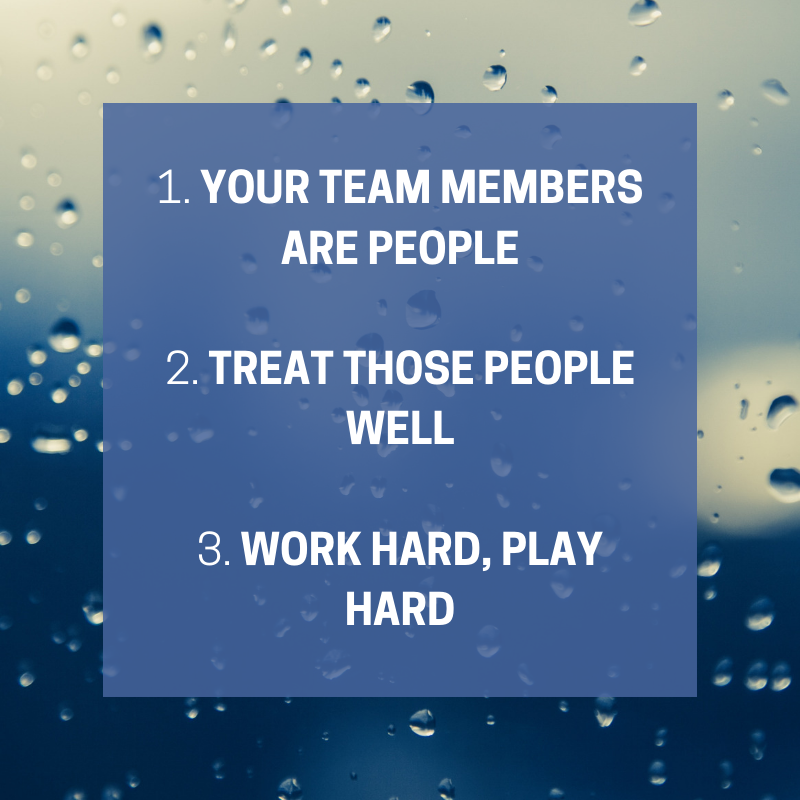
As the CEO of JSL Marketing, the questions I get asked most often are usually along the lines of:
- How do you manage your remote team when they are spread across the US?
- How do you keep your team motivated across time zones and state lines?
- How can you create a company culture when you aren’t even together most days?
And though I’ve seen lots of articles on ‘how to stay organized online’ or ‘management and productivity tips for remote work’ (in fact, JSL has written on these very topics in the past), you almost never see articles about remote-work and company culture, just company control.
And yet, if you ask any of the JSL Marketing team what it’s like to work for us, they’ll relay to you a very specific (and very fun) company culture – all while still growing, becoming more efficient, and more profitable.
How can that be? How can we be remote, have a company culture that is fun, but still work hard and provide our clients with superior service?
It’s not as hard as you might think, in fact, I bet I can sum it up into three easily digestible tips.

Recognize That Your Team is Comprised of Real People
This is easily said, more difficultly done – but almost impossible to do well and consistently unless your team is willing to be honest with you.
Why is their honesty a large part of treating them like real people and not workhorses? Because you need your team to feel comfortable telling you when something is beyond their skill level, their available time, or their available energy.
And because everyone is different, everyone has different stress points and thresholds. You cannot guess at where someone’s cutoff is – they need to communicate it. And this can only be done if you’ve encouraged your team (hopefully, from the very beginning) to be open and honest with you.
JSL started out small and grew very quickly, this means many of our team have been here since the beginning and have had to learn at a very fast rate. And I would be lying if I said it was never stressful for myself, Sarah, and our team, but realizing that your team members have other important factors in their lives besides work is a great way to remind yourself to view them first as people, and second as workers.
One way in which we do this is by asking about life-events as well as work-events during our weekly team meetings. Just this past week we had two different team members viewing homes (which is both time-consuming and stressful). Another team member is going on a short trip, while two others are doing a 24-hour road trip to Canada. Previously, one of our team members was in the middle of her graduate school exams, and another was in the middle of a cross-country move.
These events are ‘human things’ not ‘employee things’ but we still recognize them, talk about them, and plan for them in our meetings. And this is just one small way we recognize our team as people first, workers second.
Incentivize, Reward, & Treat Your Team
This can easily go with the above point, as incentivizing, rewarding or treating your team is important no matter your company culture, but I thought it deserved its own spot because of the reasoning behind it.
It actually can be broken down into a separate category for each word used: incentivize, reward, and treat.
Incentivize Your Team
I think incentivizing your team is integral because it shows that your success is their success. This means they have some ‘skin in the game’ so to speak, or, more aptly, it shows them that they are a part of this company and that their work directly matters in either growing or slowing the company.
This can also get them excited about work. After all, ‘perks make the place’, right?
Reward Your Team
No, I’m not being redundant, because a reward is different from an incentive.
An incentive is told beforehand, to motivate your team into working extra hard or trying new things. A reward is given after something great has been done.
Recognizing and rewarding your team when they do something great is a way to show you appreciate them, you notice them, and that their hard work is never going unnoticed.
In many ways, a paycheck is an incentive, but a reward is that bonus they didn’t know about. A reward is a surprise given to let your team know you notice, you care, and you’re happy with them.
Treat Your Team
Finally, treating your team is different from both incentivizing and rewarding – as both are in regard to their work. However, treating your team has nothing to do with work, it has to do with simply showing your appreciation for them, and the value you see in them ‘just because’.
An example of this could be company lunches or dinners or trips, or even company ‘swag’ which is what JSL is currently creating and distributing to our team.
Something as extravagant as a nice team dinner out, or a company box to watch FC Dallas win, or as little as a JSL tank top, pen and notebook, or some tacos on our lunch break can make all the world to your team.
In fact, the treats our JSL team regularly receive might very well be one of the largest factors in the ‘fun’ aspect of our company culture, and the incentives and rewards the largest factors in our efficiency during peak times.
Mix Business & Pleasure
As you might have noticed by reading how we view our team (and understand that life exists outside of work) and how we incentivize, reward, and treat them (in fun ways, also outside of work), we often mix work and fun.
This means even in our meetings, we’ll joke a bit, talk about life a bit, and ask for opinions on everything from our next eBook to the tagline on our company t-shirts and tank tops.
Of course, a mix of work and fun doesn’t mean all fun. So much of creating a successful business is finding that delicate balance between fun and work, life and business, and employees and friends.
Luckily, we’ve got a great team who can laugh about me eating alone (and getting caught on tape by our videographer in Klyde Warren Park) one minute, and then immediately jump into talking about their projects, deadlines, and proposals the next minute.
They can also tell me when they are having a heavy week, a light week, a stressful week, or when they want to try or learn something new.
Again, I truly think it all comes back to acknowledging that your team members are people, not just workers.
Company Culture Doesn’t Have to Be Rocket Science, You Just Have to Encourage Your Employees to Work Hard & Not Be Afraid to Have Some Fun, Too
Want to be a lifetime learner like me? Check back next week to learn my 7 go-to information hubs for all things digital marketing, SEO, web design and more.